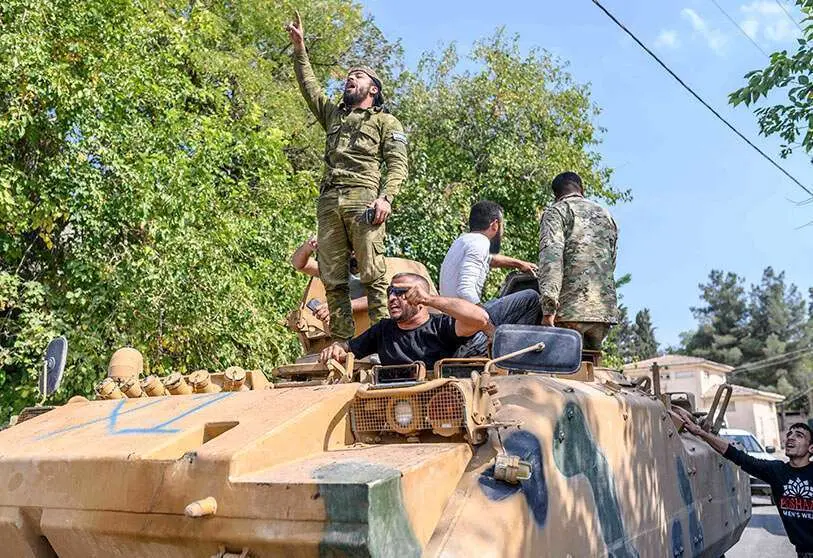Pillage as a way of making war

Human rights violations have been the order of the day throughout the nine years of the war in Syria. All the factions involved, from Daesh in his day to President Bachar al-Asad's Syrian Arab Army, including the opposition rebel groups, have engaged in this type of behaviour.
Crimes such as robbery have been present in every corner. In fact, the indiscriminate looting of private and public property has been the usual modus operandi of the armed groups operating in the north of the country under the orders of the Turkish Government. The Syrian Observatory for Human Rights (SOHR) has been documenting acts of looting by members of these organizations, who are very often related to entities close to jihadist terrorism, for months.
One of the latest episodes has taken place in the town of Al-Amir, north of Raqqa and in the area that has come under Turkish control following Operation Spring Shield. There, a militia associated with the Ankara Army has undertaken to steal up to 20 sheep from the flock of a local farmer. Given the current dates, the animals could be destined for the end of Ramadan fasting ('iftar') meal or even the end of Ramadan feast in 20 days' time.
In any case, the dynamic of snatching private property and usurping public ones in order to later do business with them has been constant in the last years of the war. In the towns of Abu Rasin and Tal Tamr, near Al-Hasakah, in the extreme north-east of Syria, several of the electric motors used to pump water from wells have been stolen. According to SOHR, they were subsequently resold on the black market for less than a quarter of their value.
The consequences of these acts are extremely harmful to the local population. As they do not have the necessary infrastructure to obtain water, their places of residence become, in practice, uninhabitable. For this reason, many of them are forced to leave their homes to settle elsewhere. Syria's is a war where water, a very scarce commodity in the desert areas that dominate the country, has also been used as a weapon.
The UN estimates that fighting between the Damascus regime and opposition organizations backed by the government of Recep Tayyip Erdogan has left around one million people displaced. Many of them have been forced to settle in the precarious and unsanitary refugee camps on the Syrian-Turkish border.

At the war level, the ceasefire signed by Russia - Al-Asad's main ally - and Turkey in early March has been producing some results. At least, direct clashes between the Syrian Arab Army and the Turkish Armed Forces deployed in the de-escalation area of Idlib have ceased. In addition, joint Russian-Turkish patrols along the strategic M4 highway are progressing well. Seven have already taken place since the beginning of the operation.
Although no one seems to want an open confrontation, the actors involved continue to strengthen their deterrent. Over the past few days, Ankara has sent a new column of 25 military vehicles loaded with supplies, between combat and transport units, to the north-west front. With the arrival of the reinforcements, SOHR estimates that Turkey now has more than 6,300 vehicles deployed on Syrian territory.
The tense calm in the country is frequently disrupted by the constant bombardment of militias. The Damascus Army, in fact, continues a seemingly inexorable advance, with repeated artillery and aviation air strikes. In recent hours, SOHR reports that the municipalities of Sfuhen, Al-Ftera and Fulayfel, in the rural area of Jabal al-Zawiyah, have been bombed.








